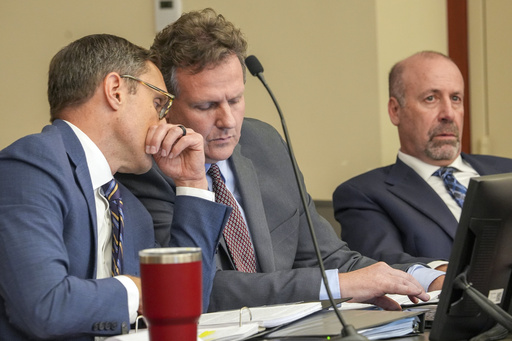
A judge ruled on Thursday that the decision on a proposal to amend Utah’s constitution, allowing state lawmakers to rewrite voter-approved ballot measures, will not be made in the upcoming November election. The question will still appear on the ballots due to the proximity of the election, with legislative leaders planning to appeal to the Utah Supreme Court.
Salt Lake County District Judge Dianna Gibson sided with the League of Women Voters and other challengers of the measure, agreeing that the ballot language is misleading and has not been advertised in newspapers statewide as required.
Despite the ruling, the amendment will still be included on Utah ballots in November to adhere to ballot-printing and other election deadlines but votes on it will not be counted.
The ballot language stating that the change would “strengthen the initiative process” was deemed misleading by a League of Women Voters attorney during a hearing, with Gibson concurring in her ruling that it fails to disclose the chief feature of the amendment, which grants the Legislature the unrestricted right to alter laws passed by citizen initiative.
The proposed constitutional amendment following a July Utah Supreme Court ruling upholding a ban on district lines aimed at protecting incumbents or favoring a political party prompted lawmakers to seek the authority to restrict such voter-approved measures.
Lawmakers approved the state constitutional amendment for voter decision in November during a special session in late August, in response to the Supreme Court ruling.
Opponents who filed a lawsuit on September 5 to block the proposed amendment faced tight deadlines with less than two months until the election, leading to the recent ruling by Judge Gibson.
Legislative leaders criticized the ruling as a “policy-making action from the bench,” expressing disappointment that the courts rather than the voters will determine the future policies of the state.
The proposed amendment, which originated from a 2018 ballot measure establishing an independent commission to draw legislative districts every ten years, has faced pushback from the Republican-dominated Legislature. In 2020, lawmakers removed a ban on gerrymandering from the measure and disregarded the commission’s new congressional map by passing their own, dividing Democratic-leaning Salt Lake City into four districts, each currently represented by a Republican.
